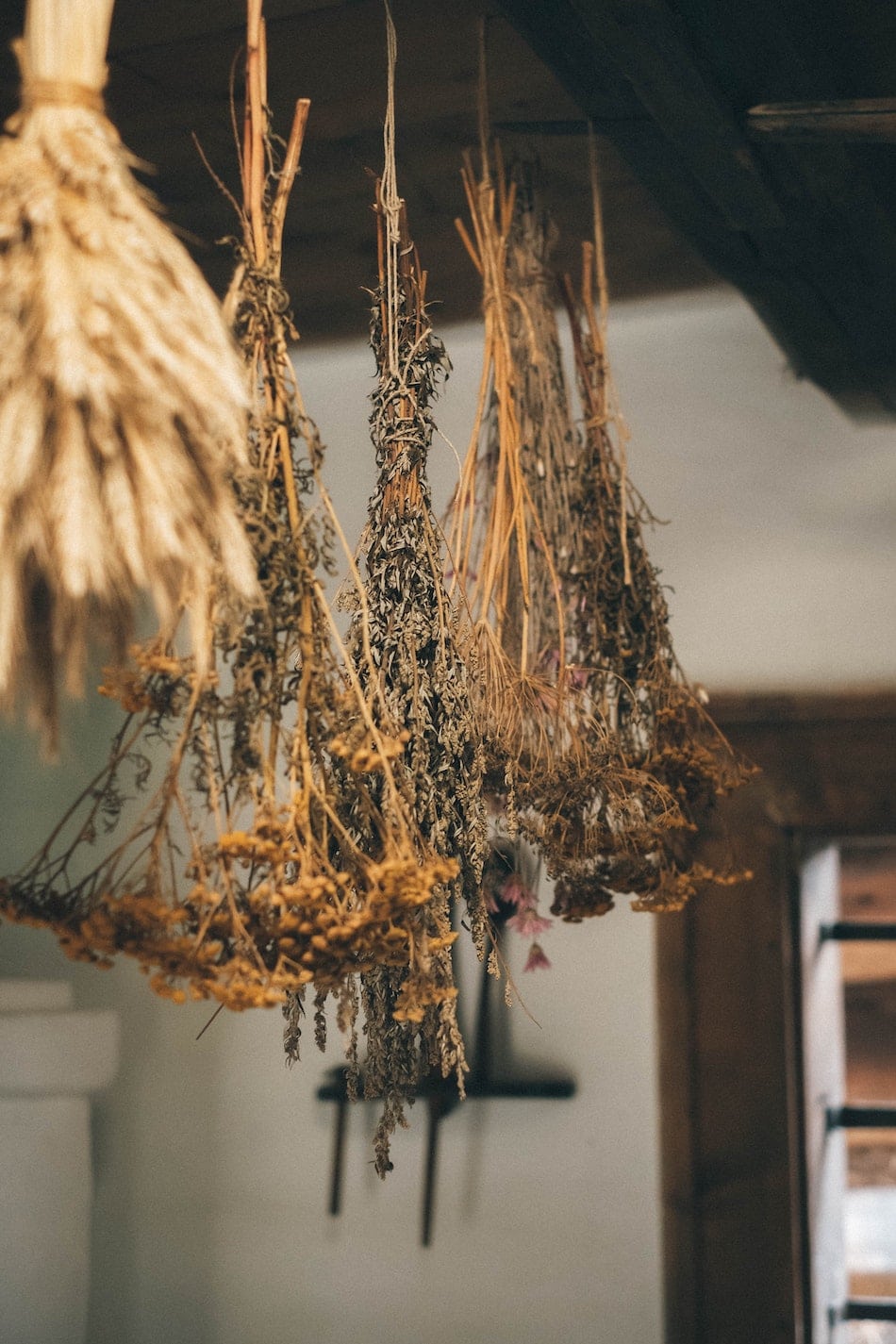
Do you want to learn how to become an herbalist? Are you interested in learning how to use plants to support your health in as natural a way as possible — plants that grow in your backyard or in the forest behind your home or can be found in the local herb shop? Do you feel the call of the plants?
If so, I’m here to tell you that you can do it!
Herbalism is referred to as “the people’s medicine.” It’s accessible to everyone, and all you need is someone to guide you along.
I’ve been on this wild and wonderful herbal path for over 10 years — documenting my journey here on this blog, supporting my family’s health, and teaching others how to do the same, and I can show you how to become an herbalist if you are willing to learn!
In this article, I’m going to share a few different ways you can become an herbalist right where you are. This includes how to learn herbalism for free as well as methods for self-study from the comfort of your home. I’ll also share some of my favorite online herbal programs if you want to take a more formal approach to your herbal education, and I’ll share some great herbal resources I think you should know about as well.
So, if you’re ready to become an herbalist, let’s begin.
How To Become An Herbalist
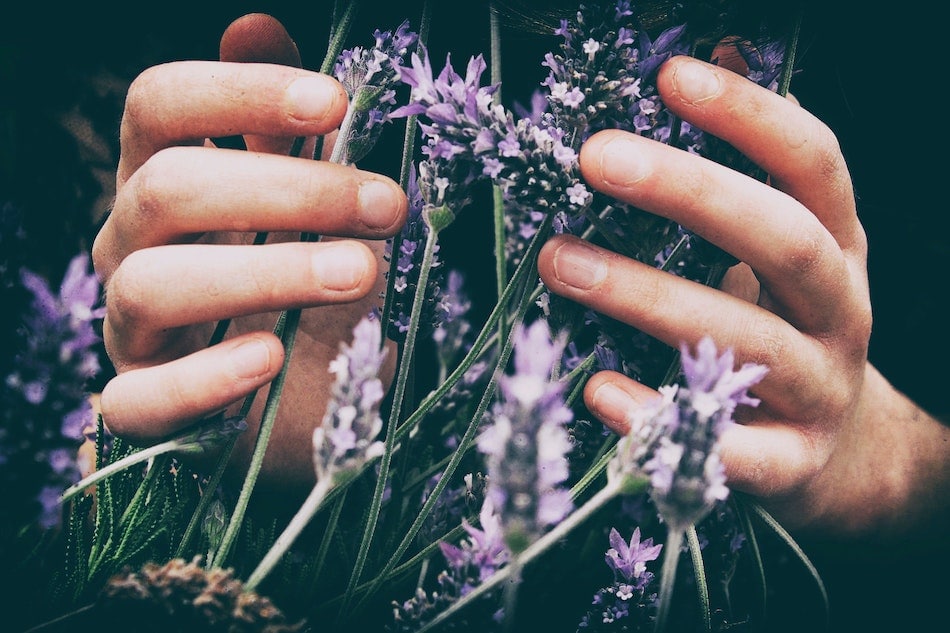
While there are a lot of different ways to become an herbalist, one of the key elements of this art is that it requires you to learn from those who’ve gone before you. There are many herbalists who are sharing their plant knowledge and experience in herbal blogs and books, online and in-person courses, mentorships and apprenticeships, and more.
If you’re interested in pursuing herbalism, which of these options appeal to you most? What works for your current lifestyle, location, and financial situation?
While some people do well learning on their own, others prefer to learn in a group setting or one-on-one. Some people want to work through material when they have the time, and others like to have a set schedule to progress through. Some individuals like the convenience of online learning while others like the feedback they get through in-person apprenticeships.
Based on your preferences to the learning styles mentioned above, below are several options you can take to learn how to become an herbalist.
Become an Herbalist for FREE!
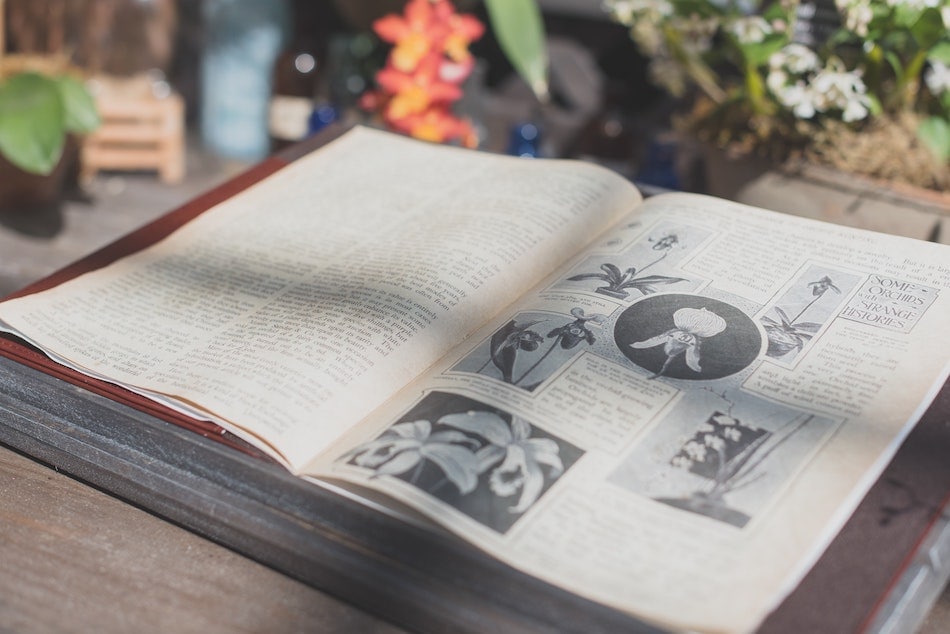
One of the first pathways to become an herbalist is to learn for free, and if I’m honest, this is where I think most people should begin. Learning for free through self-study is a great way to know if the plant path is right for you. It’s also a great precursor to more formal herbal programs as well.
So how do you learn to become an herbalist for free?
Well, if you don’t mind reading, you can learn through herbal blogs like this one. Herbal blogs will all vary in the content they offer. Some will focus on herbs for children, others on foraging and plant identification, and others on cooking with herbs. Because of this, it’s good idea to find 4-5 herbal blogs you enjoy reading and stay up-to-date on their new posts regularly.
Some of my favorite herbal blogs are Herbal Academy, Chestnut School of Herbal Medicine, the Naturopathic Herbalist, Learning Herbs, Grow Forage Cook Ferment, Evolutionary Herbalism, and so many more.
If learning through video appeals to you, you can learn how to use herbal by watching herbal channels on YouTube. I have several herbalism videos on my own channel, but I also enjoy watching Herbal Jedi, Simply Josephine, and She Is Of The Woods from time to time as well.
Another free option to becoming an herbalist is to get a free library card and check out herbal books they have there. Reading herbal books and taking notes is a great way to learn about herbalism and can really help you make progress on your journey. Here is a list of my favorite herbal books for beginners as well as some herbal books for self-study to help you get started.
The last way to learn about herbalism for free is through taking free herbal courses. A lot of bloggers and herbalists like the ones mentioned above have free courses you can take, and some local herbalists hold free workshops or plant identification walks. Again, these courses will vary in their content, but it can be a great way to learn something topic specific or check out the herbalist’s teaching style.
All of these options can be a great way to dip your toes into the world of herbalism as well as see if learning through online courses is a fit for you.
How to Become an Herbalist Through Comprehensive Herbal Programs

There are a lot of comprehensive herbal programs out there designed to teach you how to become an herbalist from start to finish — or should I say from beginner herbalist to clinical practitioner. These formal programs can be in-person programs or online/distance learning programs, and most require you to start at the beginner level and work your way up through the clinical level.
In-person programs will typically have a set schedule that you’ll need to follow and will allow you to finish by a certain date if you stay on track. Online programs often allow you to work at your own pace, but most of them also have some sort of set end date to them.
While formal herbal programs can be costly, they do almost all of the work of putting together a complete plan of study for you, and they help you to stay on track with your studies. If you’re not a self-starter, or you find you have trouble staying motivated, these types of programs can really help you to stay committed and make steady progress.
When searching for a formal herbal program, do some research to check each program out. You’ll want to make sure the school or herbalist is reputable with plenty of experience and training under their belt, that there are plenty of positive testimonials from the students who’ve gone through the program, and that you agree with their philosophy.
Once you’ve found a program that you think might be a fit, check out their pricing, course outlines, class formatting, whether homework or fieldwork is required of you, what supplies/materials you will need before starting the program, etc. And finally, don’t make a hasty decision. Sit on it a while, ask around, see what other programs people in your circles are talking about, and make a detailed pros and cons list if you have to. If you’re paying a pretty penny for an herbal program, you’re going to want to make sure you know it’s the right one for you.
Filling in the Gaps with Topic-Specific Studies
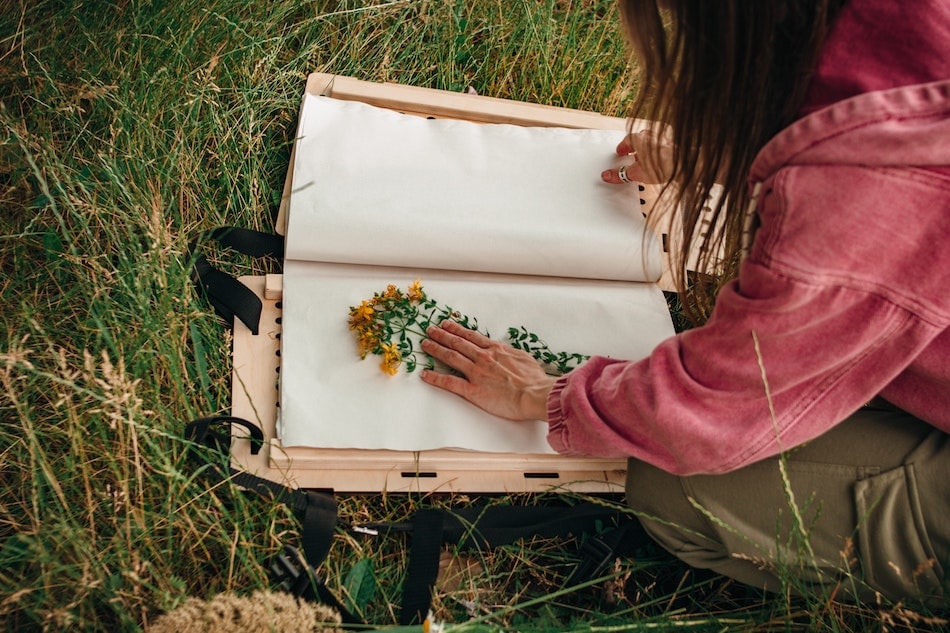
One thing I’ve learned in my own herbal journey is that no matter how you become an herbalist, whether for free or through a formal herbal program, there will be gaps in your learning. It’s inevitable and completely normal.
Thankfully, you can fill in your learning gaps through topic-specific studies. This will require you to be aware of your strengths, weaknesses, and needs so you can fill those gaps in if possible. Just as learning the basics of herbalism can be accomplished through self-study or formal study, filling in learning gaps can be approached in the same way.
There are many topic-specific books that you can check out from your local library or purchase to increase your learning. There are local and online workshops or conferences you can attend to fill in gaps as well. You can also increase your education through formal short courses focused on a specific topic.
Tips for Becoming an Herbalist
As you pursue your herbal journey — on your own or under the guidance of other herbalists — there area some things to keep in mind that will help you on the way.
Keep Good Records

Keep track of what you’re studying and how much time you spend on your studies.
While you may begin with the goal of becoming a family herbalist and only using herbs yourself or with your children, you never know where this path will lead. Keeping records of all books, courses, workshops, seminars, etc. that you take to learn is a good idea. Not only can it help you identify gaps in your knowledge-base, but if you ever want to become a registered clinical herbalist through the American Herbalist Guild, you will need these records when you apply.
Know Your Herbs
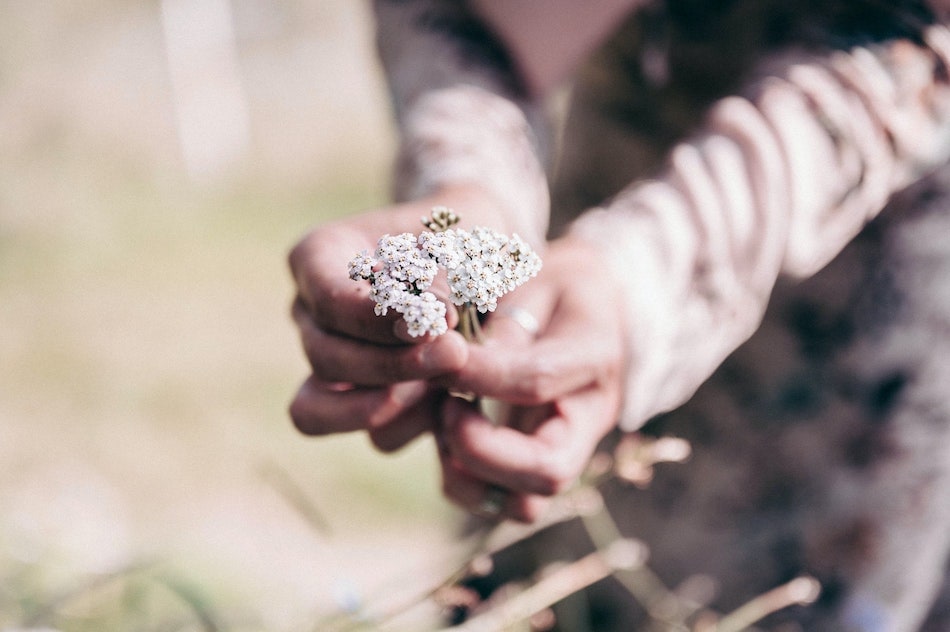
Start an herbal materia medica and update it regularly.
While understanding the body, how it works, what happens when it is unwell, how herbs can bring balance back to the body, how to make herbal preparations, how to assess an individual, and so on and so forth. You know, all those things you need to learn to become an herbalist. Knowing your herbs is one of the most important things you can devote time to during your studies.
Many new herbalists, particularly in comprehensive herbal programs, skip this part or get so caught up in making their way through all the other materials they don’t have as much time to spend one-on-one, quality time with herbs. Knowing individual herbs and how they work, how to identify and grow them, how to prepare and formulate with them, what chemicals they contain, their safety information, dosing ranges, and more is all a very important part of becoming an herbalist.
Walk the Walk
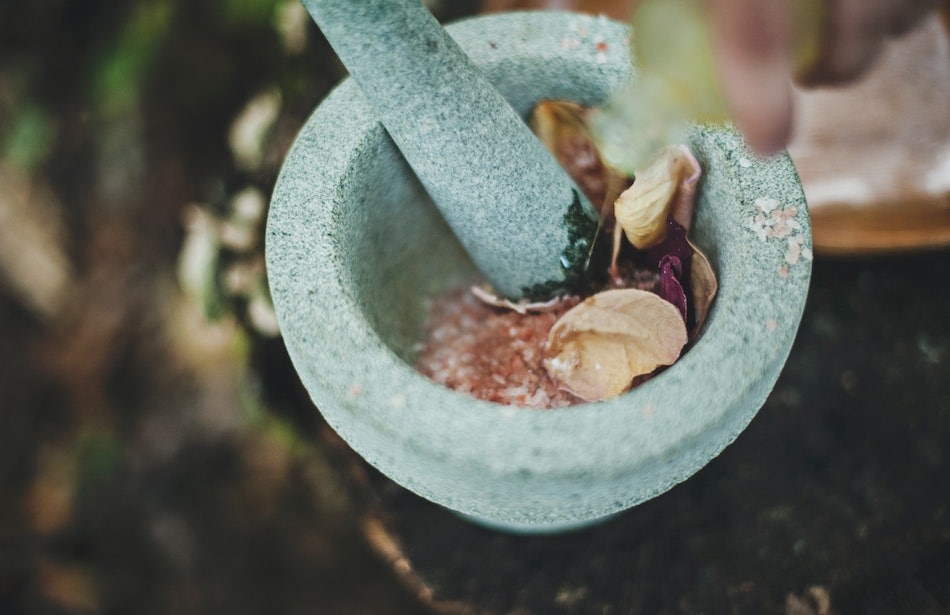
Get hands on with herbs and preparations, making and using them regularly.
If you are going to become an herbalist, don’t forget to actually use the herbs you’re learning about. One of the easiest ways to use herbs is for prevention and overall wellness. Get in the kitchen and learn to make herbal preparations that can be used daily. Learn how to incorporate herbs into the food you eat and the drinks you drink. Stock your home apothecary with preparations you find yourself needing regularly. Learn to identify and harvest, and use the herbs growing around you.
Becoming an herbalist isn’t just about having a knowledge of how to use herbs. It’s also about actually using and incorporating them into your life and the lives of those around you as well.
You Can Become an Herbalist!
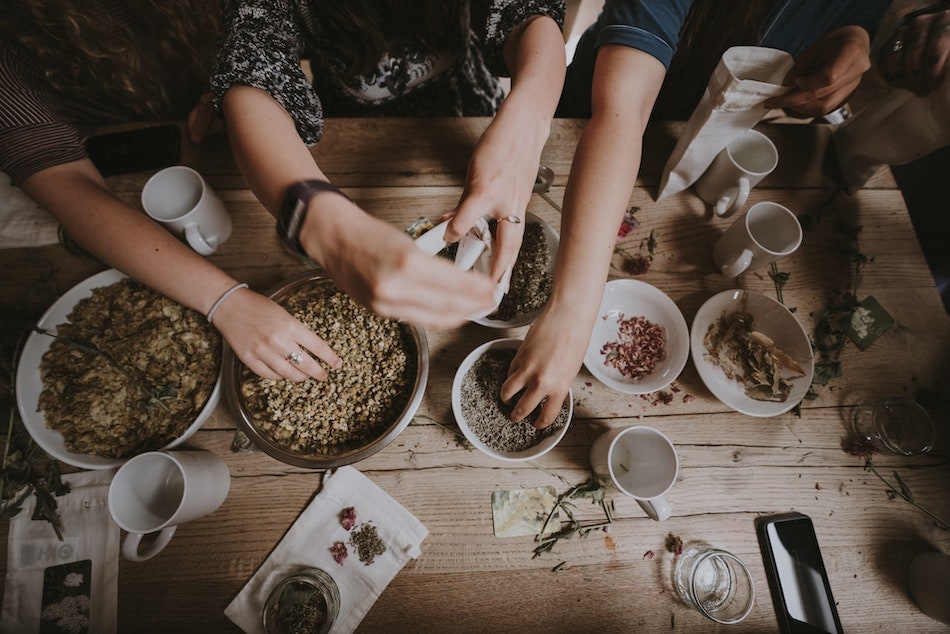
So there you have it, friend. You can become an herbalist, and there are many different ways to make the journey. What path speaks to you? The path of self-study, a free path, a comprehensive path, or an interest-led path. They’re all good. They’re all worthy.
No matter which path you find yourself starting on, you can always cross over onto another one if you’d like. Don’t feel trapped. The world of herbalism is a wild and wonderful one.
An Herbal Mentor
If you’re looking for an herbal mentor, I hope you’ll allow me to walk this journey with you.
If so, feel free to sign up to receive my Seasonal Missives letters which I send out twice a month. These are filled with information on seasonal herbalism and natural living. You’ll also get instant access to my free Seasonal Living Collective as well.
You can also join my Inner Circle Membership as well where you’ll receive exclusive, member’s-only content each month right here on the Growing Up Herbal blog.
Lastly, check out my shop. There I have several ebooks, courses, workshops and workbooks, and sometimes physical herbal products as well, all designed to help you learn how to incorporate herbs into your life.
So here’s to you, friend — a future herbalist! I’m so excited to have you join me on this journey. We need more people like you!
How are you currently learning to become an herbalist? What types of learning have you enjoyed so far?
Post originally published March 2013. Updated February 2022.
Thanks for the interesting article.
I got started on herbmentor.com which has lots of great courses and articles but I couldn’t take the pagan influences.
So I found a Christian course at Vintage Remedies. I just finished the family herbalist course which was very good and reasonably priced.
But now I am looking for something more.
I do a lot of study on my own and so as not to be too overwhelmed I focus on ailments and needs of my own family and herbs I can grow or obtain easily. It’s easier to work with a dozen or so and know them well than to try to memorize a large list of unfamiliar herbs that I will never use.
I will check out the school you mention. I have been looking at Rosemary Gladstars course. I have enjoyed her books very much.
Yeah I’ve heard great things about Vintage Remedies so I’m glad you liked it. The Herbal Academy of New England has been great for me so far. It’s a bit more advanced, and I’ve not really seen anything that bothered me at this point. Check it out… and I hope you like it!
I want to open up my own herb store. It would be a dream come true. Right now I focus on herbs that people need around me. Either from Thrush…or babies with upset stomachs…or seasonal allergies. I research research and then jump in. I find myself more and more on your website. Thank you for all your hard work and dedication!
You’re so welcome! That’s what GUH is all about. I want it to be a resource for natural mamas as well as myself. It’s impossible to remember everything in your head so it’s nice to have it all cataloged somewhere… although that will take a lot of time to do, but I’m working on it! I hope your dream of an herb shop comes true. We need more local shops. You never know when it may be difficult to get them online!
You mention that there are different approaches. Is there a book that provides an overview of what you are talking about? I want to take a beginner herbal course in the next 6 months or so- but I don’t even know “my approach” if you know what I mean. Thanks!!
I’m not sure if the different approaches are summed up in a book or not… the ones I mentioned were off the top of my head. Dabbling is where I started… just learning how to make the different herbal preparations. After that, I moved on to learning about individual herbs here and there as well as what herbs were specifically used for certain situations (like for thrush or wounds or itching). Next I started getting books from herbalists I’d heard of. As I read more of that, I became more interested in more advanced herbal practices so I ended up signing up for the online herbal courses HANE offers. I will say that their introductory course covers the dabbling, individual herbs, and basic herbs for certain situations while the intermediate course covers more in-depth practices. I love that school so definitely check it out if you’re looking into them. They’re one of the lower priced, yet higher-quality ones online. HTH!!
How I learned about herbs…
I’m trying to concentrate on what I can grow in my area and use them the best I can… What I can’t grow in my garden, I would have to buy. Yes, I really get overwhelm learning what is out there online, like I need a mentor who lives nearby.. Lot of times I’m seeing different herbs that I never heard of…like in mountain rose company; still never found jewel weed…Then I try to look for a herb that will do the same thing in my area…
So what my method? Growing up Herbal..I love your site Meagan, you have open my eyes… I’m learning slowly… Right now I’m trying to start my own plants…seriously, I’m freaking out in buying anything from the stores.. I want control of my holy temple, but I want to know what I ‘m doing first… What is safe to buy? Can I do this myself and safely canned for my family…To help others is not as easy as I thought.. I feel I need to learn, right now I buy books and read..this year I’m hoping to companion planting..why? To keep the bugs from eating my herbs, vegetables… Yes this is a start… I would like to take courses later, because I love learning…
Good article, Meagan! I’m a grandma whose interest in herbalism first sparked about 5 years ago. I am another practicing herbalist with a focus on foraging, what I can grow, and what I can easily reproduce. In addition, I have a great resource in our local natural foods co-op.
The hardest part for me was having the selection of remedies I wanted at my fingertips, with the vital information and recipes in a format that was easy for me to use. I finally have my book together and it has made all the difference.
Thank you and keep up the good work!
I can totally relate to the struggle of finding remedies to keep stocked at home. I want to make everything! It’s definitely a process… one I’m still working through. I’m also still working on my materia medica book too which I think is a lifetime work. I’d love to know more about how you’ve put yours together, what you include, how you organize it, etc. Thanks for your comment!!
Hey, I am 15 and a freshman in high school. I started my journey of living naturally last year in September of 2015 I weighed 186 and was not eating right and wanted to change my lifestyle so I would have energy and be healthy. It is now October 2016 and I weigh 139 I now eat organic, watch portions, obsessed with reading natural health and nutrition articles and now want to be a nutritionist or dietitian to help others like my past self. I know I have to wait until college for taking courses for becoming a nutritionist. But I was wondering if I could take the herbal course you mentioned? What are good free courses?
Thanks
Rachel
You can definitely take herbal courses now! I’m not sure about good free options, but Herb Mentor has a low monthly fee and there are lots of free courses on herbs there. Hope this helps, and best of luck, Rachel!!
Found you through pinterest & love the advice! I’m a young mom & have been learning about herbs on a need to know basis for treating health issues and learning what is safe for pregnancy/nursing/babies. My big challenge is not learning about herbs as much as actually biting the bullet & buying what I need so I have supplies on hand to treat my family quickly!
I hear you, Alissa. One of the things I’ve learned over the years is that a handful of herbs can go a long way. You don’t always need tons of herbs in your apothecary to use herbs successfully in your family. Many herbs in recipes can be substituted, or you can learn to formulate your own blends based on what you have available. Best of luck, and I hope you find a ton of helpful info on GUH!
5
0.5
4.5
Have you heard of Dr. Christopher’s School of Natural Healing? If so, what’s your opinion on it? I see they have online/correspondence courses…
I have! I believe it’s a well-respected school, and his products are of high-quality… at least as far as I know. I can’t speak from personal experience, but I have a good friend who went to that school and felt like it gave her a great start as a family herbalist. If you wanted to be a clinical herbalist, you may need further education (if you’re looking for a thorough education, that is), but I’m not sure.
3
2.5
1.5
1
Ever since I can remember my sisters and I use to called my mother “witch “ because she would give us some weird concoction of plants, “she would called them herbs “ but as we grew up we noticed that without consciously knowing we were doing the same thing!! I grew up in Guatemala and came here as an adult.
I’ve always been into doing things the natural way and lately I have found myself doing my own facials creams because I’m allergic to make up and I’ve never been able to use anything on my face unless I’d known what goes into it. I’ll be looking into some of the links that you listed in this article. I grew up growing a lot of my food and herbs and I always been interested in exploring that side.
Thank you for the article, I actually randomly came upon it today because I was reading about herbalism and ganotherapist .
Sincerely
Rosalía